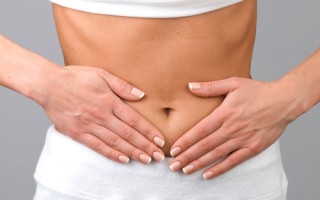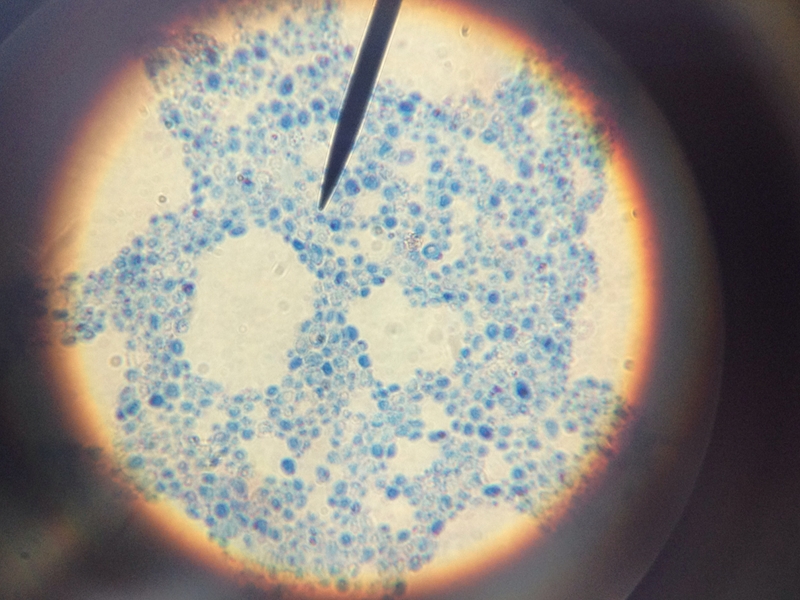
When most of us hear the word bacteria, we automatically associate it with something bad or even life threatening. Whether it be associated with germs in your home or an infection in your body, bacteria has gotten a bad wrap. However, the truth is our bodies are full of bacteria, both on the inside and on our skin. Here, we are going to discuss the thousands of bacteria that reside in the GI tract, both good and opportunistic, known as gut flora, their monumental role in keeping us healthy, and why consuming beneficial bacteria (referred to as probiotics) is essential for keeping our digestive systems working properly and our immune systems strong.
So what kills good bacteria in our gut?
The environmental composition of bacteria in the gut is different than the mouth, nose, skin and groin. It is essential to keep the bacterial ecosystem within the entire body diverse and healthy in order to contain opportunistic microbes and properly fight and get rid of pathogenic microbes.

The beneficial bacteria in our guts actually communicate with other areas of the body and are responsible for keeping an appropriate pH in the stomach to keep pathogenic bacteria from growing and our digestive systems working properly. According to the American Nutrition Association, a staggering "70,000,000 people everyday suffer from some form of digestive issues (heartburn, acid reflux, GERD (gastro esophageal reflex disorder), IBS (irritable bowel syndrome), indigestion constipation, diarrhea, abdominal pain, etc.)."
In addition, almost 80 percent of the immune system in housed in the gut and is also responsible for communicating with the brain and producing neurotransmitters, such as serotonin and dopamine. The central nervous system (brain and spinal cord) and the enteric nervous system (the gut) share the same tissue, which is why there is such a close relationship between the digestive system and the brain. This is also why the gut has been called your "second brain." There are numerous factors that can damage and kill off beneficial bacteria and disrupt bacterial harmony. The lifestyles and environments of many Americans have wreaked havoc on our digestive health. Experts say that this damage can begin nearly as soon as a baby is born. In addition to poor diet, alcohol and drugs, stress, and over-counter-pain killers, here are just a couple examples of what can kill this good bacteria:
- Artificial food coloring: These dyes are frequently added to foods to make them look more appetizing. A recent study from Purdue University explored just how prevalent these dyes are in name brand, packed food items. The results indicated that many products contained high amounts of these artificial food colorings, which many studies have shown to impair some children's behavior. In addition, food colorings are shown to showcase both antibacterial and antifungal properties. While generally marketed as positive, they can disrupt the natural order of beneficial bacteria in our gut.
- Antibiotics: Interestingly enough, just as probiotics means "for life," antibiotics means "against life." While these medicines are successful at ridding our body of infectious illnesses, they also indiscriminately destroy good and bad bacteria in our body during the process. When used effectively, they can be extremely helpful. However, the problem is most people don't know they should begin restoring their gut's good bacteria following their antibiotics use.
Taking probiotic supplements and introducing fermented foods (in the form of vegetables, dairy, and drinks) into our diets can help repair the damage done by gut-damaging factors, such as the ones mentioned above and other toxic chemicals our bodies are exposed to on a daily basis. It is important to note that certain probiotic supplements work better for some people than for others depending on genetics as well as underlying conditions, such as histamine intolerance. Limiting certain species of lactobacillus strains may be beneficial in this case, along with increasing bifido strains
When introducing beneficial bacteria in the form of supplements or fermented foods, it can create a "die-off" scenario in which pathogenic microbes die and may cause unpleasant symptoms in an individual. Therefore, introducing these particular supplements in the body should be done so gradually and should be discussed with a healthcare professional.
The most popular broad spectrum probiotic supplement for individuals on the GAPS Diet is Bio-Kult, as it was formulated by Dr. Campbell-McBride. However, there are a variety of high quality probiotic supplements, both broad spectrum, as well as ones that only contain strains of bifidobacteria, and an all soil-based probiotic. Dr. Campbell-McBride recommends trying to get as many different strains of beneficial bacteria in your diet as possible.
For additional information about the GAPS Diet and how to get started, you can consult with a Certified GAPS Practitioner and visit the rest of our website today!

